
Explaining The Chosen: Season 1, Episode 8: I Am He
Here it is – the last episode of the season that drew us all in to The Chosen series. Like the previous episodes, this one was engaging and entertaining, as well as surprisingly Biblically accurate – with a creative twist.
If you missed my posts on previous articles Explaining The Chosen, find them here.
And click on the image to the right to watch any episodes you missed (or just want to watch again) in Season 1.
Jacob’s Well
This episode opens with Jacob talking to his sons, saying “This is the spot.” This scene refers to the story in Genesis, where Jacob has just met and reconciled with his brother Esau. After this, he settled in the Canaanite city, Shechem.
Now Jacob came safely to the city of Shechem, which is in the land of Canaan, when he came from Paddan-aram, and camped before the city. He bought the piece of land where he had pitched his tent from the hand of the sons of Hamor, Shechem’s father, for one hundred pieces of money. Then he erected there an altar and called it El-Elohe-Israel.
Gen. 33:18-20, NASB
Jacob explains to Yassib that his God is called El-Shaddai. God gave this name to Himself in Genesis 17:1 when establishing His covenant with Abram. El Shaddai means “all sufficient God”. The word Shaddai is also used by itself in Numbers 24:4, commonly translated as “Almighty”.
Jacob tells Yassib that God is usually invisible but that “there was one time he broke my hip”. He was referring to the time he wrestled with God in Genesis 32:24-32.
In this scene, it appears that Jacob’s well is out in a field in the middle of nowhere. While it may have started out that way, this location has been well-preserved throughout history. In fact, we still not only know the location of this well, dug thousands of years ago, but it’s one of the most highly fought over spots on earth!
The Samaritan Woman
It’s at this same well that we meet the Samaritan woman. Recorded in John 4:1-42, it was at Jacob’s well that Jesus sat to rest and asked this woman for water. Here, we see her drawing from this well in the heat of the day. As we know from the Bible, her lifestyle made it so she wasn’t able to draw water with the other women. Because she was ostracized, she visited the well in the heat of the day and not in the cool of the morning, when the others were there.
In her conversation with her current husband, Neriah, Photina presents him with a certificate of divorce. He responds that “only a man can divorce his wife” so she’s had the certificate written in his name. The Law they’re referring to is found in Deuteronomy 24:1-4. The purpose of this law was to provide for a divorced woman. In their culture, a divorced woman would have no rights to land or property and would have no means to provide for herself. The certificate would force the man to go through legal proceedings instead of just banish her. It legally allowed her to go back to her family’s household and to go on with her life, including being re-married.
Of course, the conversation between Photina and Neriah isn’t in the Bible, so The Chosen’s writers are taking some creative license here.
The Dinner Party
When the rabbis visit the dinner party at Matthew’s house, they refuse to enter because of the type of people there. There were tax collectors, as well as those from the “Red Quarter”, like Mary Magdalene (Episode 1). Yussif even says that mentioning what goes on in the Red Quarter would defile him.
It’s often thought that the Jews in the Bible didn’t mix with Gentiles because it was against the Law given in the Old Testament but this isn’t the case. In order to ensure they did not break any laws, they made “fences” around the Law.
For example, it’s against the Law to work on the Sabbath. But how does one define what’s “work”? Well, in order to help the people know exactly what qualified, Rabbis determined specifically what actions were “work”. This is why Jesus and his disciples were accused of breaking the Sabbath when they picked wheat from a field in Matthew 12:1-7 (Also Mark 2:23-28 and Luke 6:1-11) even though the Torah doesn’t specify that picking grain is forbidden.
While we may find it strange and maybe even wrong to create these “fences” around God’s Law, most of us do this in some way. I know many Christians who don’t drink alcohol, not because the Bible says it’s sin to drink but to prevent their drinking from leading to sin. This concept is the same as that of the “fences” but the Jewish leaders just enforced these things on a more corporate level.
Caiaphus
When Zohara was helping Nicodemus get ready to go, she mentioned Caiaphus, the High Priest. We already know this guy from the story of Jesus’s crucifixion. In Matthew 26 and John 18, he’s the one who accused Jesus of blasphemy. We also see him questioning Peter and John in Acts 4. She also mentions Eliav and Havilah and Moshe and Gideon. I love the deep meanings of the Hebrew names used in this series. Eliav means “my God is a father”, Havilah is the land mentioned in Genesis 2:11, Moshe means Moses, and Gideon appears in the book of Judges.
The Eschet Chayil
Zohara reminds Nicodemus of the Shabbats (Sabbaths) they were used to celebrating as a family. The Eschet Chayil is a blessing the husband says over the wife at the Sabbath table. You can read more about this blessing as well as the other Shabbat blessings and traditions in Explaining The Chosen: Episode 2: Shabbat.
Adonai El Roi
This is the name given to God by Hagar after she was told by an angel that she was pregnant with Ishmael. It means “God who sees me”. Our God does indeed see us! What a beautiful attribute of His! Interested in more of the names of God throughout the Bible? Visit my Names of God page.
The Son of Man
When Shmuel and Nicodemus are talking, Shmuel mentions that Jesus called himself the “Son of man” and said it was right out of the book of Daniel. He’s referencing Daniel 7:13-14, a prophecy about the future. But the “Son of man” is not only used here it’s found throughout the Bible. In the New Testament, it’s a term used to refer to Jesus. In the Old Testament, it’s used not only in Messianic prophecy but also to refer to the prophet Ezekiel and a heavenly being as well. The term “Son of man” is used in the Bible when there’s some sort of human form of God’s Spirit, so this applies to Jesus, Ezekiel (because of his prophet status), and to heavenly beings.
The Roman Decree
The Roman soldier is told to put out a decree banning religious gatherings and to make it in Aramaic, Latin, and Greek. We see a close-up of the decree, which says the following in Hebrew:
בפקודת רומא ומענישה אותה ומעצר ובמאסר מפגשים דתיים מחוץ
הספר העברי אסורים בהחלט
המורה המכונה ישוע מנצרת מתבקש לחקירה
By order of Rome, and punishable by arrest and imprisonment, religious gatherings outside
the synagogue and Hebrew school are strictly forbidden.
The teacher known as Jesus of Nazareth is sought for questioning.
The Mezuzah
In the scene where we see Jesus’s followers preparing to leave Capernaum, we see Mary Magdalene touch her fingers to her lips, then touch the doorframe of her house as she leaves. Andrew does this as well.
As a reminder of the commands in Deuteronomy 6:4-9, also called the Shema, many place a small box, containing this scripture (or another), on the doorframe of their home. When passing through the doorway, they often kiss their fingers and then touch the mezuzah to remember this command.
One reason the Shema is important because it’s a summary of what we’re supposed to be doing with our life. We’re to love the Lord our God with all our heart, soul, and mind. We’re to keep His words on our hearts and teach them to our children. When Jesus was asked what the most important of the commandments was in Matt. 22, Mark 12, and Luke 10, he said it was the Shema! That means it surely warrants our attention!
Matthew’s Dog
When Gaius stops by the home of Matthew’s parents to give him the key to the house, he leaves the dog there as well. Why do they act so strangely to the fact that Matthew had a pet dog?
As I explained in my post on Episode 4, Matthew having a dog as a pet in that culture would have been very strange. It wasn’t only uncommon to have a dog as a pet, they were looked down upon. Biblically, dogs were used for hunting and herding (Isaiah 56:11, Job 30:1) but to compare someone to a dog was an insult (Deut. 23:18, Prov. 26:11, 2 Sam. 9:8, and others).
Traveling Through Samaritan Territory
Jesus’s disciples protest when he suggests they travel through Samaritan territory. The story of the Good Samaritan (Luke 10:30-37) and the Samaritan woman at the well (John 4:7-14) make it well known that there was a rift between the Jews and Samaritans. The Jews and Samaritans have a long history of division. Many Samaritans are of mixed Jewish heritage and are mixed religiously as well. In addition to some practices of Jewish origin, they incorporate some pagan practices.
According to Josephus (Antiquities 18.29-30), the Samaritans took advantage of when the Temple was open during the Feast of Unleavened Bread and put human bones into the Temple areas to defile it. This is what Big James refers to in this scene, when he says they “profaned our Temple”.
Jewish writings refer to times when Samaritans would sabotage the signal fires the Jewish people used to inform surrounding areas of the New Moons, which indicated the beginning of months (Talmud of Israel, Rosh Hashanah 2:1, 70-71).
Thaddeus chimes in and says “they fought against us with the Selucians in the Maccabean wars”. This story, from the books of the Maccabees, recalls a time when the Jewish people were under great persecution at the behest of the Seleucid king, Antiochus Epiphanes IV. While it was a very dark time, this story did end well for the Jewish people. Their miraculous victory over the Greeks was celebrated on Hanukkah in Jesus’s time and we still celebrate it today!
Jesus responds with “and we destroyed their temple 100 years ago”. Here, he’s referring to the Jews destroying the Samaritan temple on Mount Gerazim under the direction of the Jewish high priest, John Hyrcanus, in 112-111 BCE. While we don’t have record of Jesus saying what he said in this scene, we do have his reference to this temple in the next scene, with the woman at the well.
Jesus speaks with the Samaritan woman at the well in John 4:7-43, recorded in this scene. This is at Jacob’s well which was located near the town called Sychar, where Matthew suggested they get food.
This episode concludes Season 1 of The Chosen. Wasn’t it wonderful? I’m so impressed by how well this season was done. It’s entertaining but fairly realistic when it comes to characters and situations. I’ve loved digging into each of these episodes and finding the unique Hebraic insights they’ve included. I intend to cover Seasons 2 and 3 as well so keep an eye out for my posts on those in the future!
Do you love Israel? Need a gift for someone who does?
Use coupon code Hebrew20 for a 20% discount on your order!
Experience the Holy Land without leaving home with Artzabox.
Click here to find yours!



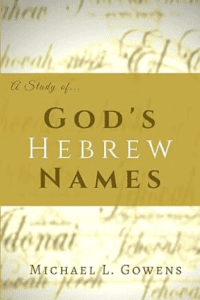
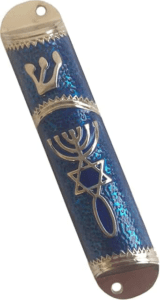
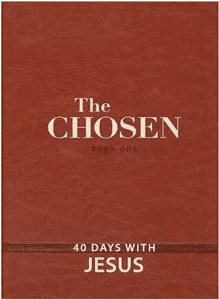
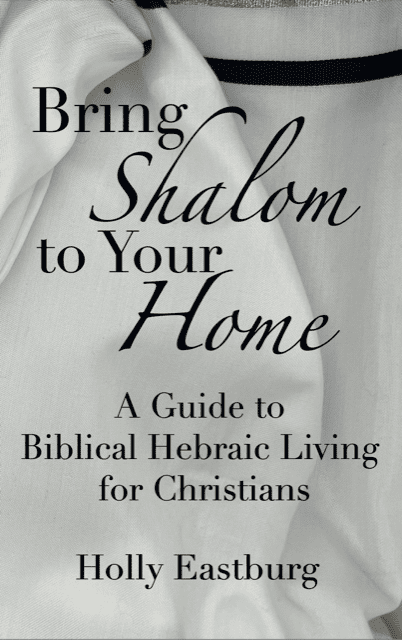

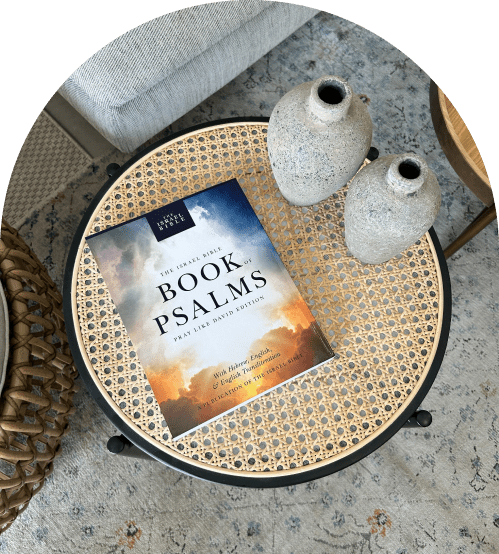
Regarding the topic of divorce and remarriage, please read Mark 10:1-12, Romans 7:2-3 and 1st Corinthians 7:10-11 for the Lord’s holy words regarding this topic.
I think you may be implying I’m in support of divorce or that I’m unfamiliar with what the Bible says regarding divorce and remarriage but neither of those are true. Did I write something that led you to believe I haven’t read these portions of the Bible?